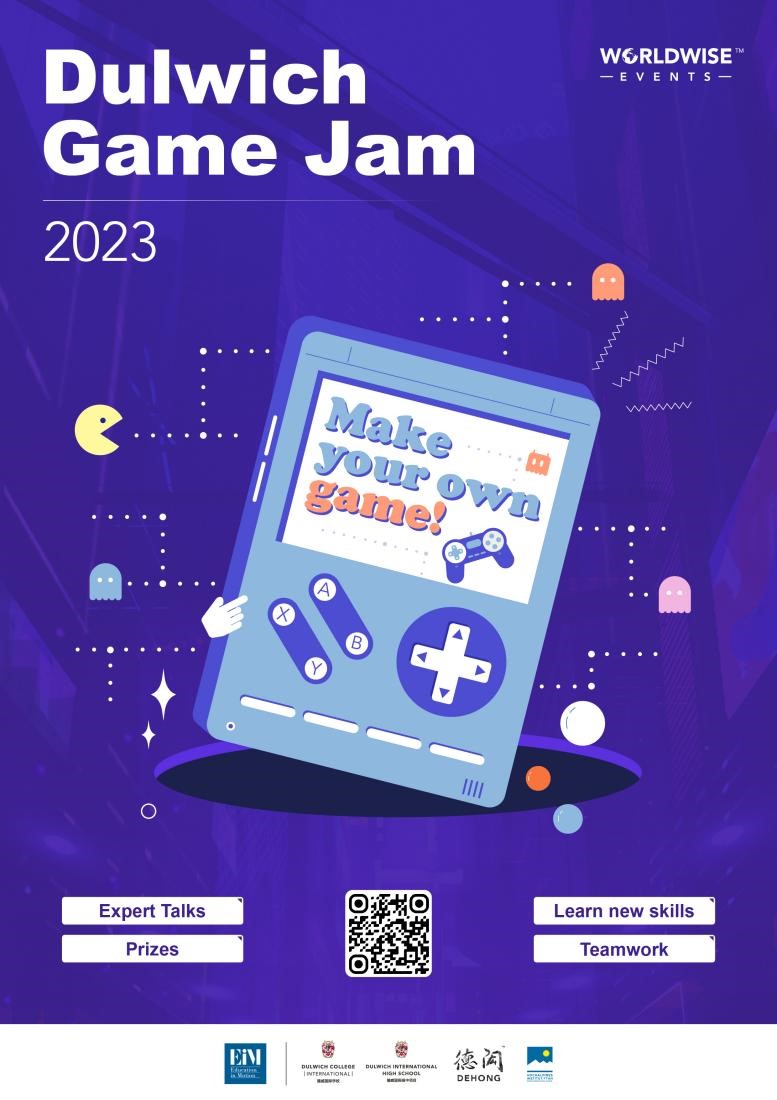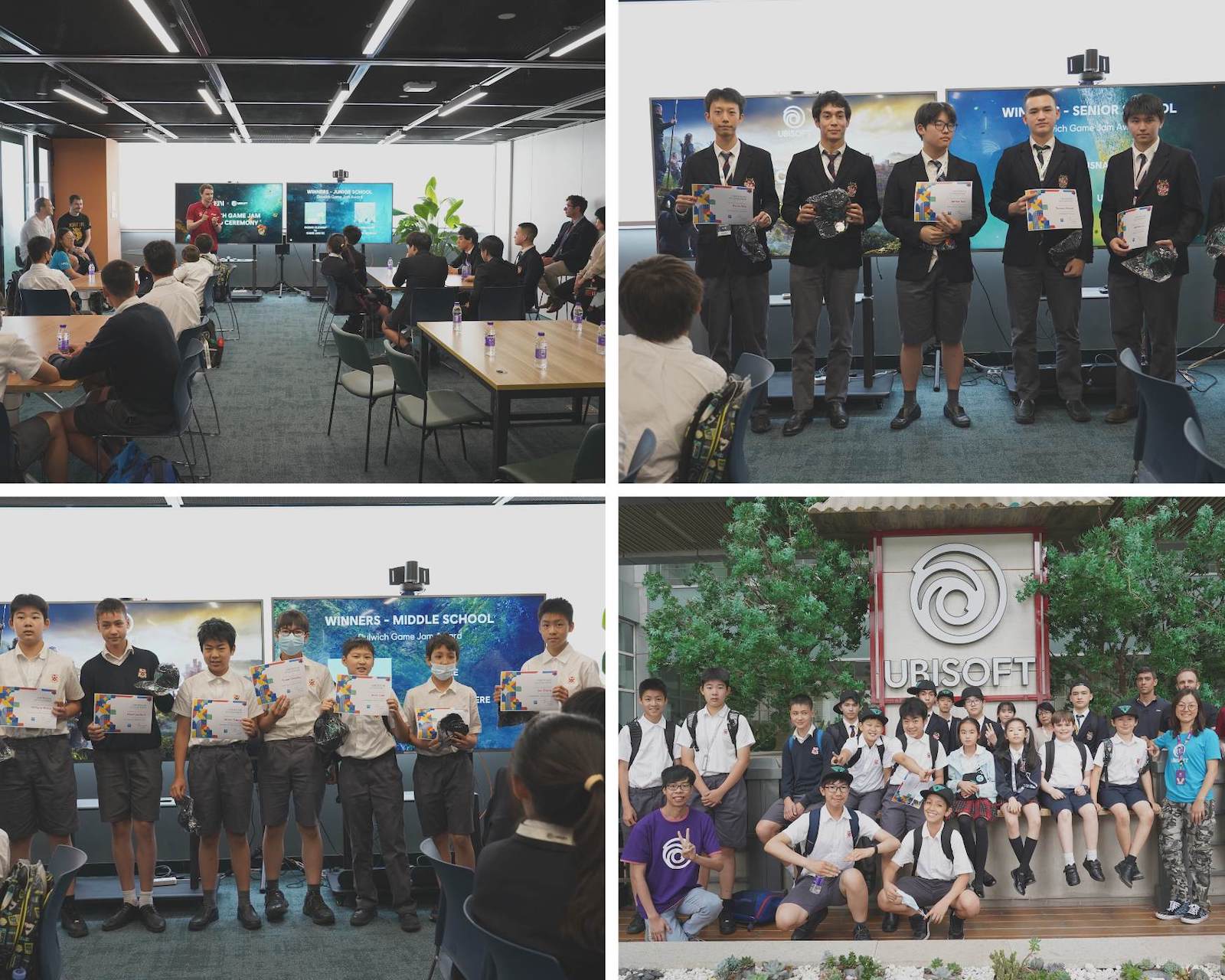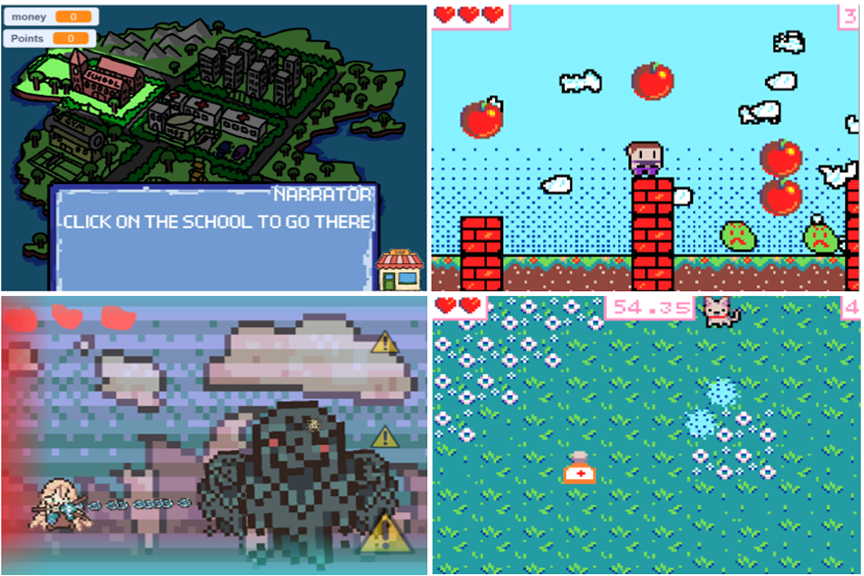STEM Education for Kids: Learn Game Programme at Dulwich Game Jam
At Dulwich College International, STEM (Science, Technology, Engineering, Arts, and Mathematics) education is more than classroom theory. It’s about bringing learning to life through hands-on, interdisciplinary projects. One of the standout activities in the Dulwich STEM education approach is the Dulwich Game Jam, an immersive event where students dive into the exciting world of game development.
This project-based experience challenges students to think creatively, solve real-world problems, and apply their technical knowledge, all while designing and building their own video games from scratch.
What is a Game Jam?
A game jam is a hackathon for making games. Participants are challenged to design and build a video game within a limited timeframe. Depending on the competition, this can range from a weekend (such as Ludum Dare and the Global Game Jam) to a full month (like GitHub’s Game Off).
Here at Dulwich, we opted for a weekend where the Game Jam spans three days (Friday morning to Sunday afternoon). This gives students an intense, uninterrupted window to bring their ideas to life. A key feature of any game jam is the theme, which is kept secret until the start of the event, sparking fresh, creative brainstorming. A good theme should be open to interpretation and allow students to create a wide variety of experiences. The theme can also be leveraged to encourage students to consider wider-reaching issues across societies and how they can use games to inform their audience.
STEM Learning in Action
During the event, Game Jam teams draw on a wide range of skills from programming and technical expertise to artistry, music composition, storytelling and marketing. Students experience firsthand how diverse disciplines intersect to create a cohesive and impactful product, reinforcing key principles of STEM education programmes. By working collaboratively, students discover how integrating Science, Technology, Engineering, the Arts, and Mathematics fosters innovation, creativity and real-world problem solving.
Game Jam 2025 Highlights
Dulwich recently hosted the WorldWise Game Jam 2025, a 48-hour competition designed to spark innovation and collaboration among budding game developers. This year’s secret theme was “Health”, challenging students from six EiM schools to create games that promote healthy lifestyles and illness prevention.
With guidance from Ubisoft Shanghai experts, students showcased incredible creativity and teamwork, submitting over 40 inspiring games. Congratulations to all the participants for their outstanding achievements and may your passion for game programming and development continue to inspire positive change!
Enter the Dulwich Game Jam to explore highlights from the event and stay tuned for Game Jam 2026!
Working with Industry & Academia
In the run-up to the game jam weekend, we collaborated with a wide range of partners from industry and academia to help prepare students for the realities of participating in a game jam.
Highlights from 2025 included talks and workshops from Ubisoft Shanghai Studio, where staff shared insights on common tools, scope, and tips for effective collaboration, as well as their past projects.
Students also received professional judging and feedback on their final projects, giving them valuable insights into the world of game design and development.
Many thanks to our experts:
- Benjamin Gallier, Francois Remacle and Magnum Lam, workshop leaders and judges from Ubisoft Shanghai
- Brian Byun, guest judge from the University of Utah Asia Campus
- Jared Rigby, facilitator from Gameful Software

Empowering Students Through Game Development: Jared Rigby’s Vision
Jared Rigby, the Dulwich Game Jam Project Leader and Learning Technology Coach at Dulwich College Beijing, is passionate about providing students with real-world, immersive learning experiences. He noticed that many students are drawn to computer science because of their desire to create video games, a powerful intrinsic motivator.
Jared’s vision was to give students a fast-paced, hands-on environment where they could drive their learning outcomes, rather than being limited by weekly classroom lessons. The Game Jam allows students to fully immerse themselves in game development, bringing both their imaginations and technical skills to life.
Game Programming for Beginners
The Dulwich Game Jam is designed to welcome students of all skill levels. Students who are new to coding or already have programming experience are offered a supportive environment. Beginners get a taste of real-world game programming through workshops, mentoring, and peer collaboration, learning important skills like debugging, problem-solving, and iterative design.
A Success from the Start: Dulwich Game Jam 2023

As we look back at the first Dulwich Game Jam in 2023, we saw over 100 students participate across three categories: Juniors (Years 5–6), Middle School (Years 7–9), and Senior School (Years 10–13).
 Dulwich Game Jam 2023 Participants at Ubisoft
Dulwich Game Jam 2023 Participants at Ubisoft
After completing their games, students submitted their work to our guest experts for judging and feedback. Members of the winning team have been invited to Shanghai for an in-person game making workshop and careers day with the team from Ubisoft China. Congratulations to the winning students!
Dulwich Game Jam 2023 Submission Showcase
Game Design for Kids: Turning Ideas into Playable Worlds
The Dulwich Game Jam offers a unique introduction to game design for kids, helping young learners transform their ideas into tangible projects. Students start by brainstorming ideas based on a theme, often tied to global issues such as the United Nations Sustainable Development Goals.
For example, the first Game Jam theme in 2023, “Be Less Wasteful”, inspired games about ocean clean-ups, forest preservation, and even imaginative concepts like sentient trash cans and factory inspections to ensure safe and healthy work environments.
Through the complete lifecycle of game development: storytelling, design, coding, and testing, students gain hands-on experience in game programming for beginners. This approach to game design education for kids builds creativity, problem-solving abilities, and teamwork skills while gaining a real-world understanding of how games are made.
Try the Games!
 Take a look at this year's entries!
Take a look at this year's entries!
Want to see what young minds can achieve in just one weekend? Check out our student-created games from the Dulwich Game Jam and experience their creativity, passion, and problem-solving skills in action.
Game On: Looking Ahead to the Future of Dulwich Game Jam
The Dulwich Game Jam serves as a powerful example of how STEM education fosters critical thinking, creativity, collaboration, and skills essential for the future.
After successfully hosting the Dulwich Game Jam from 2023 to 2025, we’re excited to continue improving the event in the years ahead!
When collecting feedback from our students on what they enjoyed about the game jam, common themes included how the event was fast-paced and required them to learn how to collaborate effectively. They also enjoyed the chance to work on a project with their friends over a weekend. An area for improvement that students identified is that they want even more time to work on their games in the future. Here’s hoping we can find more time in next year’s calendar to keep the excitement for game-making high!
For more information, please visit: gamejam.dulwich.org
Connect with us






